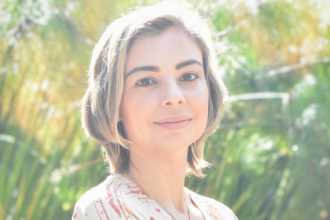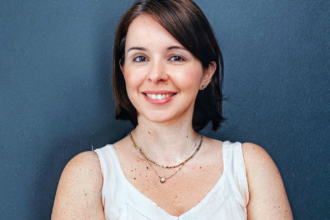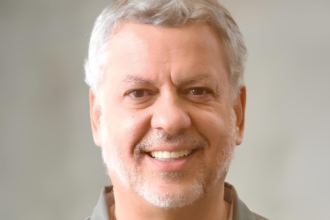Facing your own imperfections can be a difficult challenge for many. Jerusa Furbino, a writer from Minas Gerais, proposes a journey of confrontation with human failures through her book “Occult Enemy”. In this work of fiction, she unravels the complexities of family dynamics, addressing existential questions and challenging the belief that people are always who they appear to be, revealing hidden secrets and prejudices.
The plot unfolds between the capital and the interior of Minas Gerais, exploring the behavior of the Silva Rabelo family. They decide to replace the traditional Christmas “secret friend” with an unusual proposal: the “Hidden Enemy”. Proposed by Bruno, a psychology student, the game challenges participants to describe the defect of the person drawn without question.
As masks fall and secrets are revealed – such as betrayal, corruption, prejudice and rejection of a homosexual son – the characters face anger and hurt, but also learn to rediscover themselves through love and forgiveness. Jerusa Furbino invites you to reflect on the importance of family relationships, respect for individual differences and the value of having the courage to confront your own internal dilemmas.
With a fluid narrative, almost like a soap opera script, the book is enriched by illustrations by the versatile artist and poet Dione Machado, co-founder of “ColetiVoz”, one of the oldest marginal poetry groups in Belo Horizonte. The images energize the plot which, despite the intrigues and twists, concludes with a message of acceptance, love and union.
Developed by the author as a tool for emotional exploration, the work allows the reader to identify with both themselves and their own family in the story told. For Jerusa Furbino, this approach can be a starting point for personal growth.
Jerusa Furbino, born in Governador Valadares (MG), plays different roles in life: mother, wife, housewife, lawyer by training and passionate about poetry. Currently, she follows her daily path of writing, having already published two books of poetry: “Rabiscos” and “Luto – Um Passei da Poesia entre o noun e overb”, in addition to the collection of short stories “Catarse Literária”. Recognized for her contributions to poetry anthologies, her poetry “Indagações” was awarded first place in the National Club Literature Award in late 2022.
What inspired you to approach the theme of the Hidden Enemy as a therapeutic tool in your novel?
I read a lot about personal transformation, about psychology. I went to therapy for a long time, I like this aspect of self-knowledge. And sometimes, the other person sees things in you that you don’t. This does not mean that the other person’s perspective is correct, but it raises an alert so that you can analyze yourself and, if you feel necessary, change. The Hidden Enemy is actually a tool for people to accept their defects as part of the process of personal transformation.
What was the process of creating the characters of the Silva Rabelo family and choosing Minas Gerais as the setting for the story?
The characters gradually emerged in a caricatured way, I like watching people on a daily basis. So, I take characteristics from people I live with or who I see in the spaces I’m in, or even in a movie or series.
Minas Gerais is my state of birth, Coroaci is a city I frequent and I spent many Christmases with my family. I like working with real places to give the story more verisimilitude. I leave the fiction to the characters and their stories, but in my books the places my characters walk are always real, I believe that this takes a certain amount of identification with the reader.
The Hidden Enemy reveals the characters’ deep secrets. How did you balance the drama and the need to convey messages of love and acceptance as the plot unfolds?
Life is made of challenges, we call these challenges dramas in literature. But life needs to have peace too, and for that it is essential to know how to deal positively with our dramas. Facing our flaws, accepting the other’s flaws. Understanding that each family has its “B side” is important to work on forgiveness and be able to move forward without resentment or resentment.
Dione Machado’s illustration adds a visual dimension to her work. How was the collaboration between writing and visual art?
This brought an enchantment to the story, Dione and I talked about each drawing, if the reader looks closely, in the first photograph of the family no one has eyes, and this is in line with what the story wants to convey. I want the reader to see the images as an essential part of building the story. Working with images and words, for me, is a perfect marriage. I may dare to say that this is poetry!
You mentioned that story can be a tool for emotional exploration. How do you hope readers engage and reflect on their own lives when reading “Hidden Enemy”?
We can learn in many ways, and one of them is through other people’s experiences. In the case of the book, the challenges faced by each character can, in some way, sensitize the reader. I can’t say whether it will produce any internal change, but reading has the function of leading us to reflection.

Does the Hidden Enemy technique, as presented in the book, have any basis in real experience or is it a completely fictional creation?
Completely fictional. Some of my readers have already joked that they will suggest doing it in their families. I laughed and said I thought it was better not to! But who knows, perhaps in a while we will hear reports from people who used the book as a form of inspiration to carry out the technique? Just don’t come and sue this author! Laughter.
How do the characters’ journeys reflect or differ from common human experiences, especially in relation to family challenges?
The characters each have their own peculiarities, which doesn’t take too much away from our reality. No family is the same as another, despite the expression that every mother is the same. No one is the same as anyone else, accepting this is the main point in creating respect. We are individual and unique beings, and each character has its own characteristic. There are no prefabricated boxes to place the characters. I like this expansion beyond the social frameworks that most people, in one way or another, seek to fit into. I want to break this perspective with my characters. I don’t want to see them boxed or comfortable.
Do you believe that literature, in general, has the power to catalyze changes and reflections in society?
Clear! Literature has always had this role. Every social transformation passes or will pass through literary thought in some way. So much so that we can learn a little about history by reading period novels. Contemporary writers are experiencing this technological profusion and this ends up in texts that are immortalized as a source of information.
What fundamental message do you hope readers take away with them after finishing “Hidden Enemy”?
The Hidden Enemy is, first and foremost, a way of looking at your defects or secrets and accepting them, we are integral beings, not just good, not just bad. I personally don’t like this dichotomy between good and evil. Many of the social problems faced today are formed by this dual thinking that works with the extremities. Right/Left. Very bad. Black White.
I believe in dialogue, in changing attitudes through words, whether spoken or written. Opening the mind and heart is a premise that I bring to my life and I want the reader to open up to changing any fixed way of thinking that they may still have.
Do you have future projects you would like to share or any new themes you plan to explore in your next literary works?
Yes, this year I finished a novel that works on the relationship between mother and daughter in its challenging context. I sent this novel to a major literary competition, I’m waiting for a response. Besides, I’m already writing another novel. There are lots of good things out there! Writing is the way I found to quiet my mind and be able to live consciously.
Follow Jerusa Furbino on Instagram





